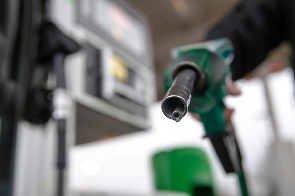Business News of Tuesday, 5 September 2023
Source: www.ghanaweb.com
FLASHBACK: The period in 1975 where fuel was banned for private cars on weekends in Ghana
There was a time in Ghana's history when the sale of fuel to private vehicles was banned on weekends due to fuel shortage.
The ban which took effect on October 22, 1975, was from 6.00 pm on Fridays to 6.00 pm on Sundays.
This was an initiative to cut down the consumption of petrol by some margin after the price of the commodity increased.
Read the full story originally published on October 9, 2022 by GhanaWeb
The usually bustling streets of Accra during the weekends became a thing of the past as the increase in oil prices compelled then-General Ignatius Kutu (I.K) Acheampong's government to ban the use of petrol by private vehicles on weekends.
The ban on October 22, 1975, was from 6.00 pm on Fridays to 6.00 pm on Sundays.
The rationale behind the ban on the use of petrol by private vehicles on weekends was to help conserve fuel following a 10 per cent increase in oil prices announced recently by the Organisation of Petroleum Exporting Countries (O.P.E.C.).
This was also a way for I.K. Acheampong's government to cut down on petrol consumption which would assist Ghana's balance of payments.
The government in a statement explaining why the ban had been imposed said: "it was not going to pass on the total price increase, estimated at between five and six million pounds sterling."
Effects of an increment in oil products
An increment in oil or petroleum products usually affects inflation and reduces economic growth. In terms of inflation, oil prices directly affect the prices of goods made with petroleum products. It also affects costs such as transportation and manufacturing.
The increase in these costs in turn affects the prices of a variety of goods and services, as producers may pass production costs on to consumers. The extent to which oil price increases lead to consumption price increases depends on how important oil is for the production of a given type of good or service.
Oil price increases can also stifle the growth of the economy through their effect on the supply and demand for goods other than oil. Increases in oil prices can depress the supply of other goods because they increase the costs of producing them.
With additional files from Reuters
Watch the video below
Ghana’s leading digital news platform, GhanaWeb, in conjunction with the Korle-Bu Teaching Hospital, is embarking on an aggressive campaign which is geared towards ensuring that parliament passes comprehensive legislation to guide organ harvesting, organ donation, and organ transplantation in the country.
Watch the latest edition of BizTech and BizHeadlines below:
Click here to start the nomination process for the 2023 GhanaWeb Excellence Awards











